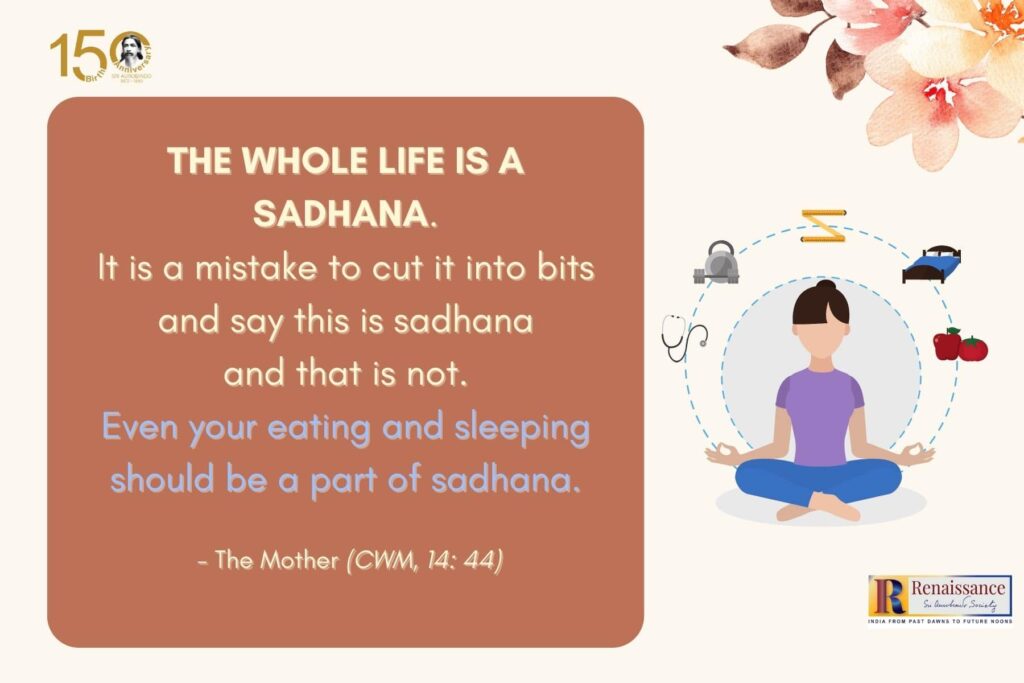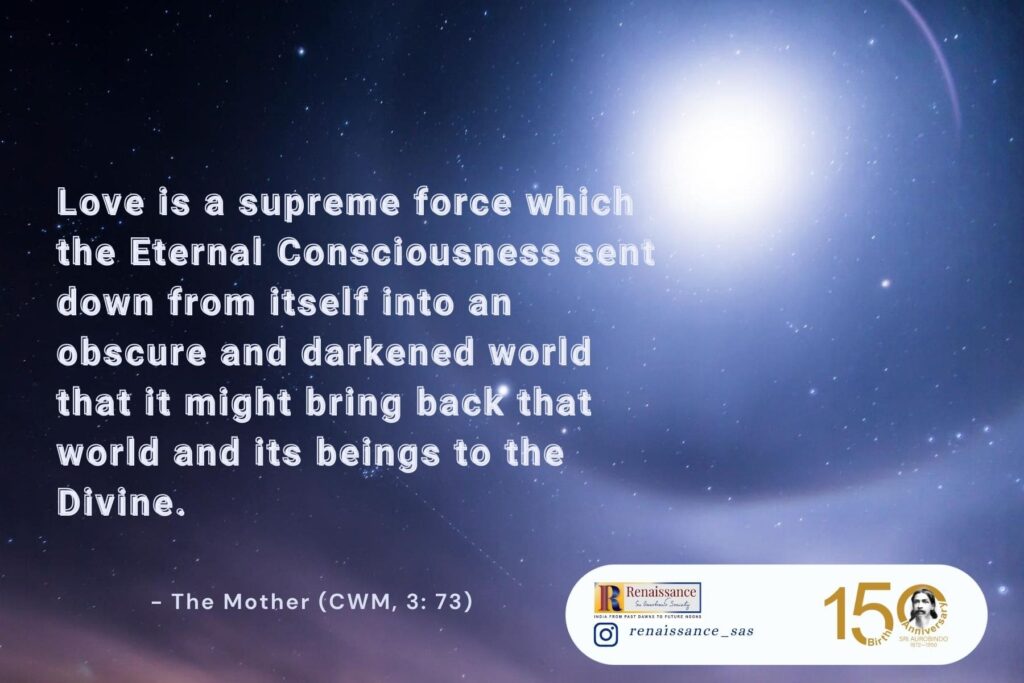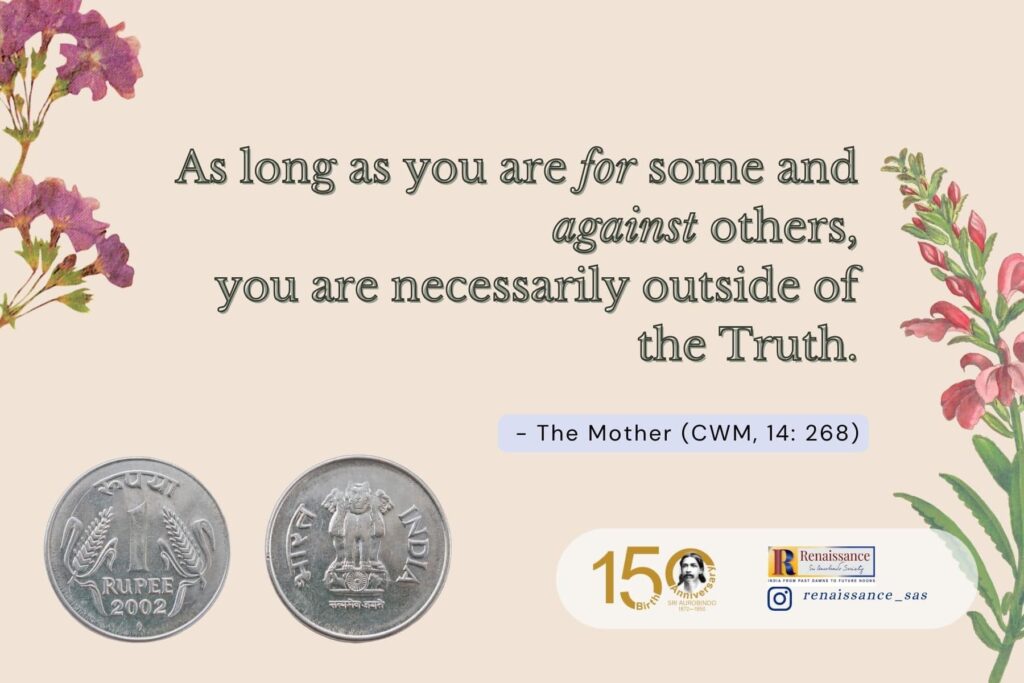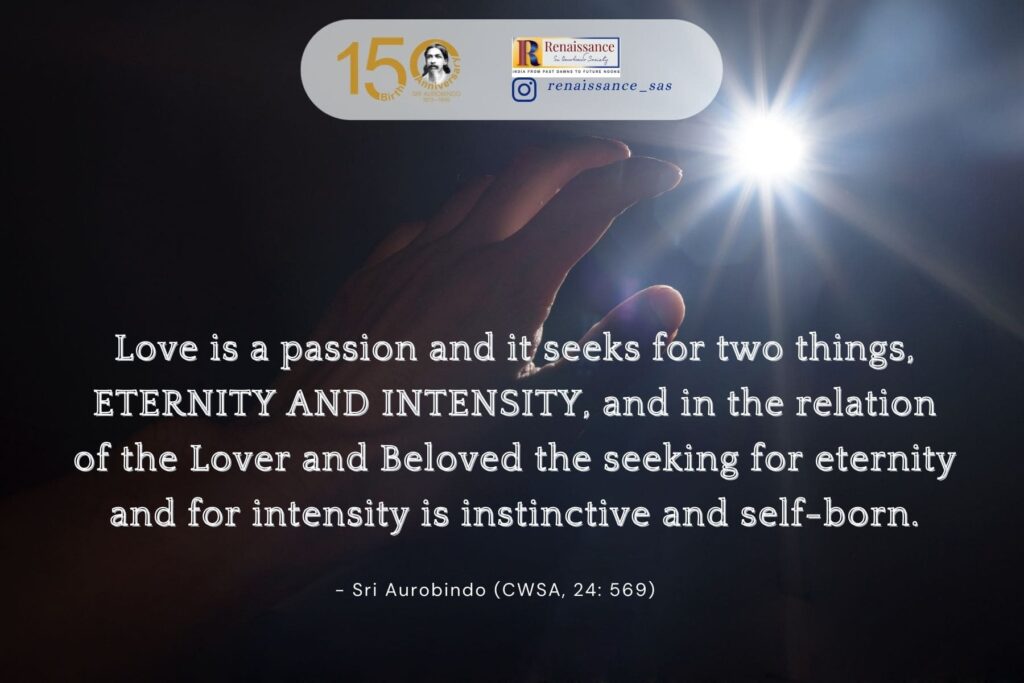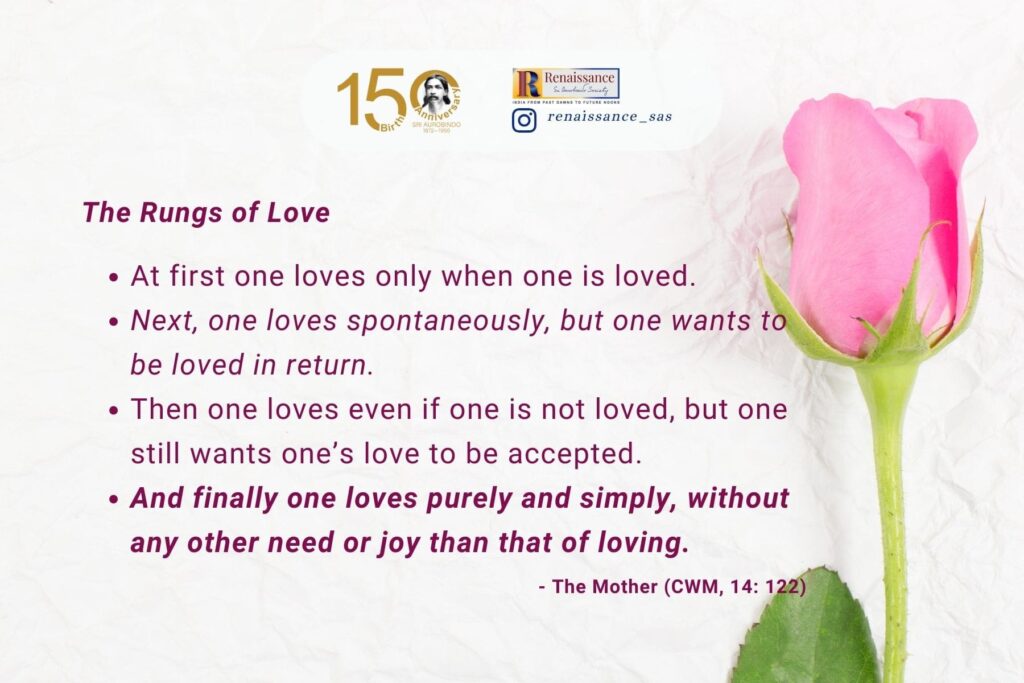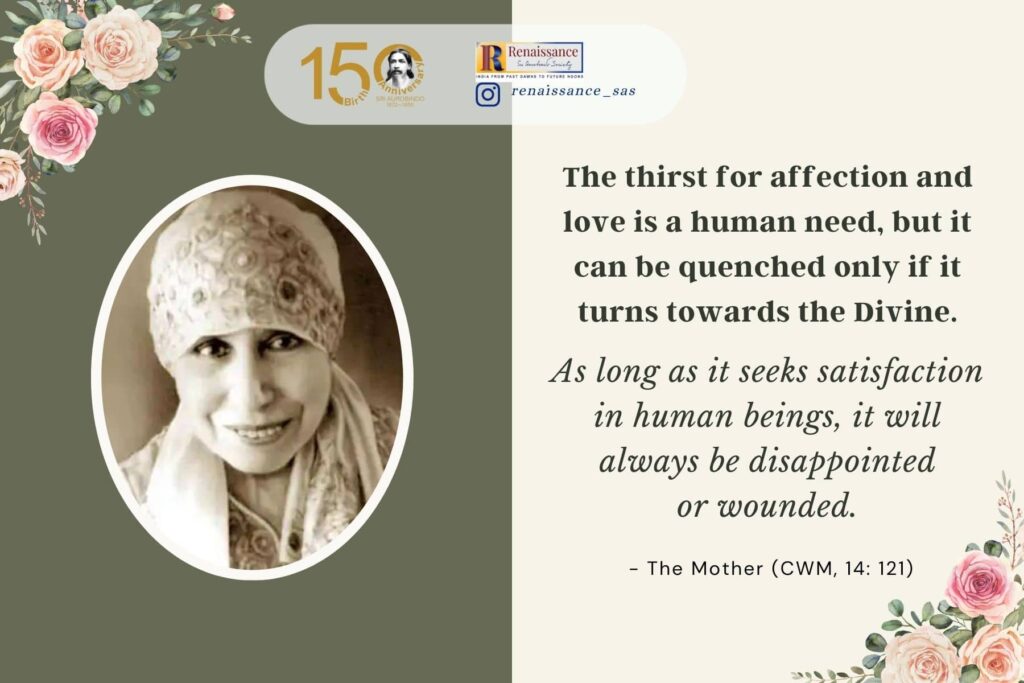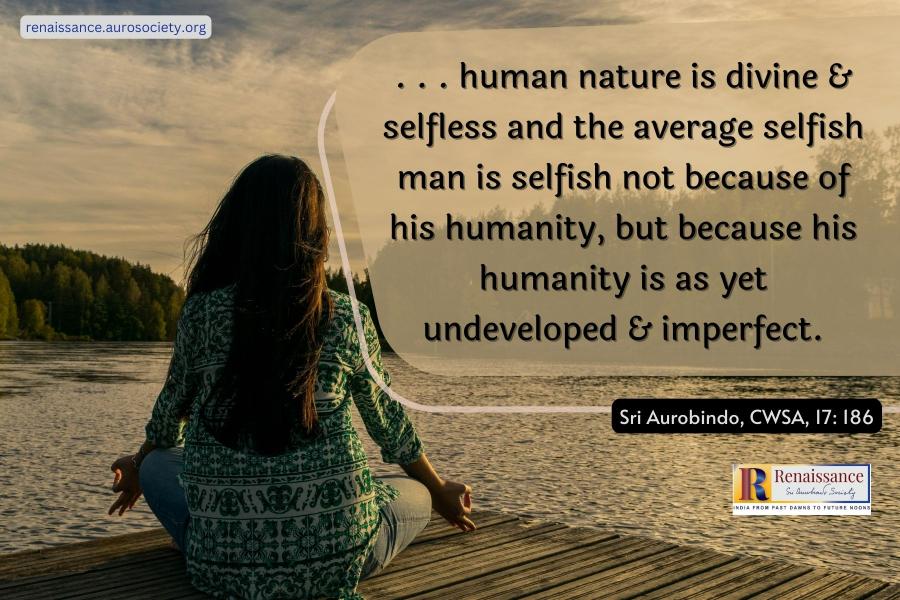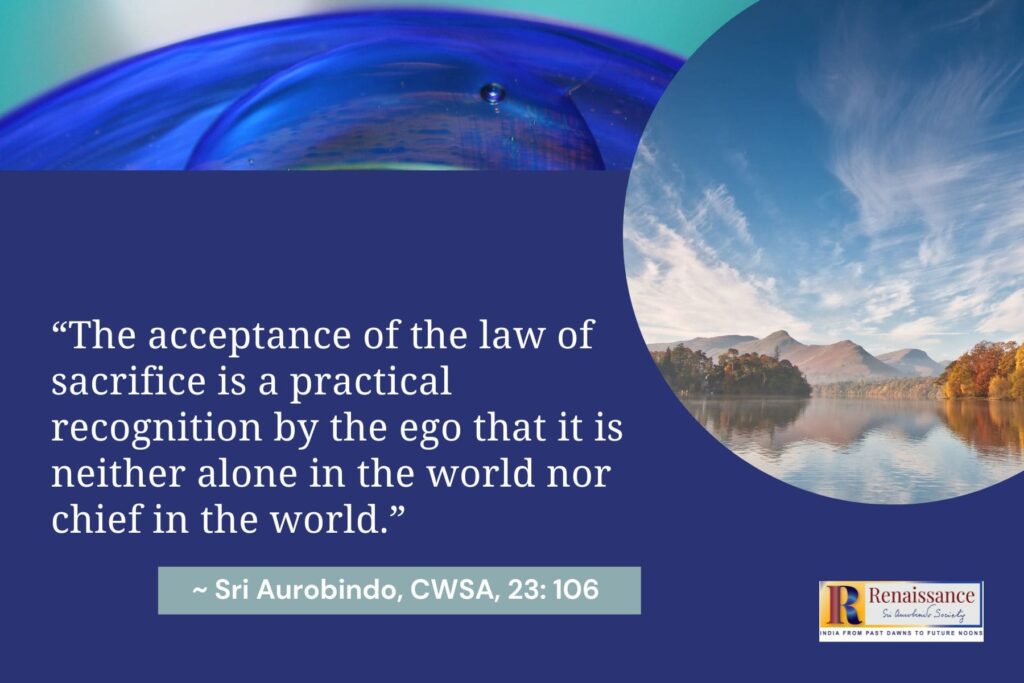Mother’s Answers on Sadhana and Life
The Mother answers to Tara Jauhar’s questions on a range of subjects such as psychic growth, eliminating the ego, connecting with the Mother in the dreams and Overmind.
Mother’s Answers on Sadhana and Life Read More »

